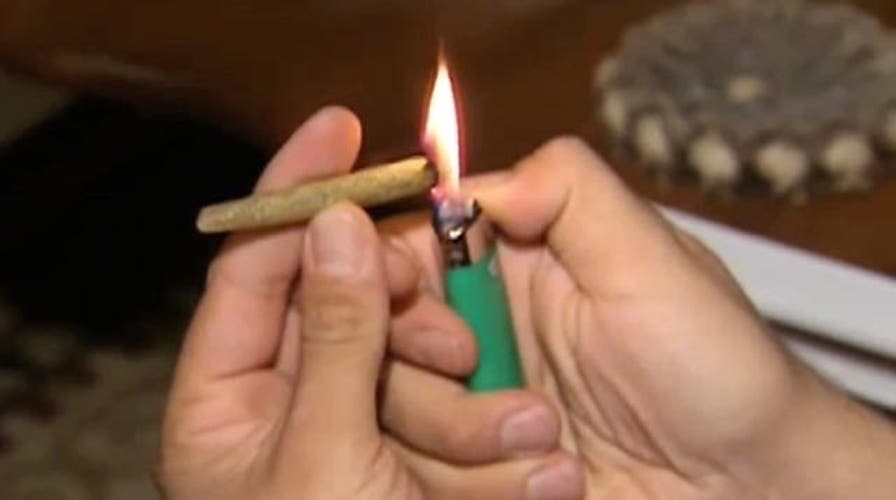Is driving 'high' dangerous? Marijuana lighting up debate
Kyle Rothenberg takes a look at the challenges involving pot use and driving
With more states pushing to legalize marijuana, some experts fear U.S. roads could become more dangerous.
The number of motorists driving high on pot has risen 50 percent since 2007, according to the National Highway Traffic Safety Administration. Unlike driving under the influence of alcohol — which is evaluated by law enforcement using field sobriety tests and breathalyzers — marijuana presents more complex challenges. Because humans metabolize cannabis differently — making it harder for lawmakers to set a legal limit.
“This is a major health and drug safety issue,” said toxicology expert Marilyn Huestis, who believes people high on pot can be dangerous on the road. “Cannabis affects divided attention, executive function and critical tracking. Those are all critical components to safe driving and [marijuana] clearly effects those.”
“This is a major health and drug safety issue."
But there is conflicting data on whether driving under the influence of pot actually increases the risk getting in a car wreck.
“Some of these studies have suggested that marijuana use has minimal or no effect on the likelihood of crash involvement, while others have estimated a small increase in the risk of crash involvement,” NHTSA reports.
There is a challenge in estimating the risk of getting in a car accident from drug use because collecting reliable data is difficult, according to the study.
“Many studies rely on self-reporting rather than actual measurement of THC in blood or oral fluid," it said.
THC — which stands for “Tetrahydrocannabinol” — is the chemical found in pot that effects different parts in the brain. The National Institute on Drug Abuse describes THC as a “mind-altering chemical” that can alter the user’s senses, sense of time, body movement, memory and difficulty with thinking and problem-solving.
Mothers Against Drunk Driving Chief Government Affairs Officer JT Griffin told Foxnews.com more studies need to be administered.
“I’m not sure that drug impaired driving is going to translate into what we’ve seen with alcohol impaired driving,” said Griffin, adding how the standard .08 blood-alcohol limit for driving under the influence is different than any yardstick for marijuana.
“One of the big challenges is that there is no .08 equivalent for something like marijuana. We don’t exactly know where the level of impairment is,” Griffin said.
Some states measure marijuana “intoxication” using a numerical nanogram scale. For example, Washington and Colorado — where recreational use of pot is legal — defines 5 nanograms of THC or more as a DUI. Lawmakers in Illinois are now proposing a 15 nanogram THC threshold.
Many THC-levels are determined by taking blood, urine or saliva samples — but it’s difficult for police to positively confirm if someone is driving high on the road. But now THC breathalyzers are being developed that could help solve this problem.
Cannabix Technologies Inc. is creating a hand-held marijuana breathalyzer for law enforcement and the workplace. It’s currently in a prototype stage and still under development, said Cannabix representative Scott Ledingham.
Griffin noted how there is currently no THC breathalyzer that has been approved for use by the courts.
Communications Director Mason Tvert for the Marijuana Policy Project told Foxnews.com the issue is complicated.
“It’s not very cut and dry. People want a black and white answer - they want to say ‘you’re automatically impaired at this level’ or ‘you’re not at this level.’ It just doesn’t quite work that way with marijuana,” Tvert said, explaining how people need to understand the difference between pot and booze.
“Marijuana is a different product than alcohol and it affects people differently. It remains in the body for a different amount of time…we can’t try to treat marijuana like alcohol,” Tvert said. And it’s not fair how some people can be given a DUI when they were not actually impaired, Tvert explains.
“Someone who used marijuana 3 days ago and then drove behind the wheel of a car without being impaired should not be punished,” said Tvert.


